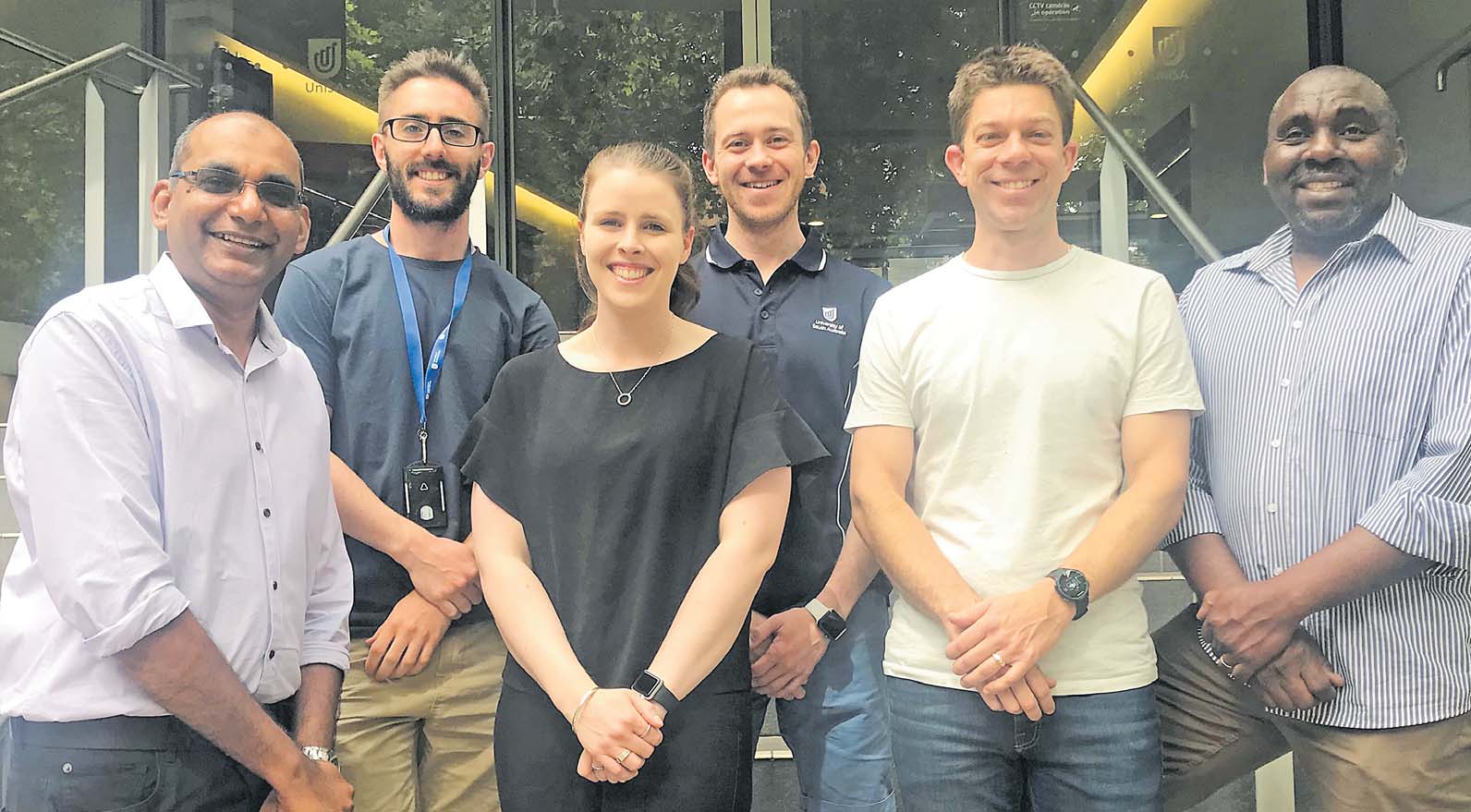Growing up in a sugarcane and rice farm in the rural region of Vanua Levu shaped the now established academic, Dr Permal Deo.
Born and raised in Naleba, Labasa, Dr Permal grew up with six brothers and two sisters.
While he and his eldest brother now reside abroad, the rest of his siblings remain in Fiji.
He attended Naleba Primary School, Naleba College, and Labasa College, and spent most of his weekends around the chaos of a farm, planting and harvesting.
During his school days, this early morning routine would include taking the farm animals to graze, taking breakfast for family members during harvest time and bringing back the animals in the afternoon.
But that did not stop him from being loyal to his evening studies.
His perseverance led him to complete his Bachelor of Science (Biology and Chemistry) at the University of the South Pacific.
For his masters studies, he was fortunate to be awarded an AusAid scholarship now commonly known as Australian Award Scholarship.
After attaining his Master of Science (Toxicology) from the University of Queensland, he returned to Fiji and worked as a food technologist in the food industry before taking up an academic position at USP.
Following the completion of a term at USP, he was awarded an International Postgraduate Scholarship to undertake PhD (Molecular Biology) studies at Queen’s University-Belfast, UK.
Dr Permal was able to submit his PhD thesis in 32 months out of the 36 months allocated and graduated in December 2008 before returning to USP.
“Specialty includes biomarkers associated with diabetes and related complications including cardiovascular disease, AD (Alzheimers disease) and cancer,” Dr Permal shared.
“Growing up in the village, I was always fascinated by therapeutic treatment used in the treatment of infection, wound, sprain or glucose control used by villagers hence I developed a keen interest in science.
“We had a village lady who knew this treatment and mostly used herbal medication either as oral dose or topical application.”
In 2010, Dr Permal joined the University of South Australia as a teaching and research academic and now currently serves as a senior lecturer in Clinical and Health Sciences.
He has also been a visiting scientist at Commonwealth Scientific and Industrial Research Organisation (CSIRO) focusing on the molecular mechanism associated with diabetes and Alzheimer’s disease.
“As a balanced teaching and research academic my role includes teaching (2nd and 3rd year undergraduate students) and research.
“I also supervise honours, masters and research students and to date I have been a principal supervisor for 10 MSc and five PhD students.”
Dr Permal has published a total of 64 scientific publications which include two book chapters, 53 peer-reviewed scientific journal articles and nine peer-reviewed conference papers.
These publications cover topics on diabetes, cancer, mutagenesis, DNA damage, gerontology, mutation research, telomere length, food microbiology, food quality and safety.
He has also done eight industry related reports as part of contract research or collaboration.
“I have been chief investigator on a number of projects and received a total of AUD$2.25 million ($F3.3m) research grant which includes Australian Research Council (ARC), Horticulture innovation (HIA), Diabetes Australia (DA), AusIndustry Connections, and CRC Industries.”
Dr Permal’s interest lies in two areas, molecular mechanism of advanced glycation end-product (AGE) – induced disease pathways and food safety and quality.
According to medicinenet.com advanced glycation end products are harmful molecules formed by the glycation and oxidation of lipids (fatty compounds) and proteins.
“I lead the glycation and DNA damage labs at UniSA and set-up the analytical capabilities for quantifying AGEs biomarkers relevant to diabetes, atherosclerosis, Alzheimer’s disease and melanogenesis (in cancer) at UniSA.
“In Australia, there are five other research groups that focus research on AGEs, however, none of these labs have the analytical capabilities hence this provided an ideal opportunity for me to establish these instrumentation techniques.
“We are now established to analyse four key AGE analytes in plasma, urine, tissue and food samples using mass spectrometry.”
Dr Permal’s current research focuses on medicinal plants and native foods as potential AGEinhibitors underpinning the health benefits of Australian native plants.
Earlier this year in collaboration with the Fiji National University and University of the Sunshine Coast, Dr Permal and his team published new research on sea cucumber that it could be a potential natural solution for diabetes prevention and management.
“As a teaching and research academic, time is spent focussed on both. Work also includes collaboration with other academics, universities and industry partners which can be challenging.”
Through all these milestones in life, his family has always been his strength and by working as a team with his wife, challenges have been overcome, and a fruitful course has been paved.
“My wife Praveena is a high school teacher and a former USP graduate with Bachelor of Science (Biology/ Chemistry) and a PGCT.
“When we moved to Australia, my wife stayed home to look after Pranav,18, and she was expecting Praina, 12.”
His wife continued as a stay-athome mum after their second child and played a key role in their upbringing while she also supported the work of Dr Permal.
“Another reason she stayed home was because I was required to travel for work as we were teaching in Hong Kong as part of Transnational Teaching model with Baptist University.”
But while the world of academia takes a huge portion of Permal’s time, he makes sure to spend his spare time in his backyard garden embracing his early farming days.
Dr Permal hopes to continue with his research and looks forward to retiring.
For Fijians he has this to say: “Have a qualification and explore your inner abilities in any field that interest you.”
“Don’t comprise on your ethics either it be personal ethic or work ethics.”


